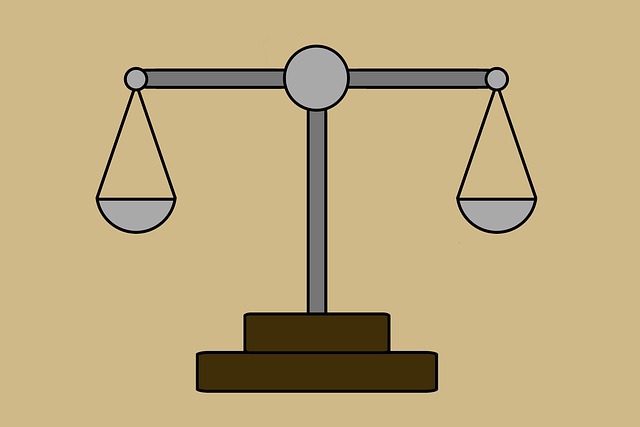RF Regulatory Agencies like the FCC enforce strict rules on wireless comms, electromagnetic compatibility, and RF safety. Non-compliance carries severe penalties. Investigations launched based on suspected violations, involving evidence collection, equipment checks, and interviews. Federal Sentencing Guidelines for Drug Offenses surprisingly apply in high-stakes RF cases, focusing on proportionality of sentencing based on offense impact and mitigating factors. Businesses must prioritize meticulous record-keeping and strong internal controls to mitigate risks.
RF Regulatory Agency Investigations play a crucial role in ensuring compliance with radiation safety standards. This article delves into the authorities of these agencies, exploring their powers and responsibilities. We examine the process of initiating investigations, highlighting common grounds for scrutiny. Furthermore, we analyze the Federal Sentencing Guidelines specifically tailored for drug offenses, offering insights into potential consequences. Understanding these aspects is vital for businesses operating in regulated industries to mitigate risks and avoid severe penalties.
- Understanding RF Regulatory Agency Authorities
- Initiating Investigations: Grounds and Process
- Federal Sentencing Guidelines for Related Violations
Understanding RF Regulatory Agency Authorities
RF Regulatory Agencies are powerful entities tasked with ensuring compliance with strict regulations governing radio frequency (RF) technologies. These agencies possess the authority to investigate and enforce standards related to wireless communications, electromagnetic compatibility, and RF safety. In the United States, for instance, the Federal Communications Commission (FCC) stands as a key player, overseeing a vast array of communication services.
Understanding the scope of these regulatory bodies is crucial, especially in cases involving potential legal violations. The Federal Sentencing Guidelines for Drug Offenses, while primarily focused on drug-related crimes, offer insights into penal consequences. Similarly, white-collar defense and general criminal defense strategies can play a significant role in navigating RF Regulatory Agency investigations. Businesses operating within this domain must remain vigilant to avoid non-compliance, as penalties can be severe, impacting both financial stability and market reputation.
Initiating Investigations: Grounds and Process
RF Regulatory Agency Investigations begin when there is a reasonable suspicion or indication that an entity or individual may have violated relevant laws and regulations. These investigations are meticulously planned and executed, considering the complex nature of RF (Radio Frequency) technologies and their far-reaching impacts on various sectors. The process involves gathering evidence, examining equipment, and interviewing personnel to ensure compliance with standards set by governing bodies, such as those outlined in the Federal Sentencing Guidelines for Drug Offenses, which serve as a framework for addressing non-drug related violations.
High-stakes cases often require a deep dive into the operations of companies and individuals involved, encompassing their philanthropic and political communities. The investigations are designed to uncover potential infractions that could have significant implications, leading up to jury trials if necessary. This stringent approach ensures accountability and maintains the integrity of the RF landscape in today’s digitally interconnected world.
Federal Sentencing Guidelines for Related Violations
In high-stakes cases involving RF (Radio Frequency) technology and its regulatory compliance, understanding the Federal Sentencing Guidelines for Drug Offenses can be surprisingly relevant. While these guidelines are primarily designed for drug-related crimes, their principles extend to various non-drug violations, including those within the realm of general criminal defense. The guidelines emphasize proportionality in sentencing, taking into account the nature and severity of the offense, as well as any mitigating factors. This is particularly significant when navigating RF regulatory agency investigations, where a company’s compliance history and the specific circumstances of the violation play crucial roles in determining the outcome.
For instance, if a respective business is found guilty of non-compliance with RF emission standards, the sentencing judge may refer to the Federal Sentencing Guidelines for Drug Offenses to structure an appropriate penalty. The guidelines consider not only the direct impact of the violation but also its potential effects on public health and safety, much like how drug offenses are evaluated. This cross-applicability underscores the importance of meticulous record-keeping and robust internal controls in RF-related businesses to mitigate risks in these high-stakes cases.
RF Regulatory Agency investigations are crucial in upholding wireless communication standards and ensuring compliance with federal laws. By understanding the authorities and processes involved, businesses can proactively avoid violations that might lead to severe consequences under the Federal Sentencing Guidelines for Drug Offenses, especially regarding RF emissions. Staying informed about these regulations is essential for navigating this complex landscape and maintaining a competitive edge in the ever-evolving world of wireless technology.






